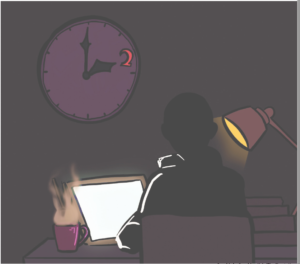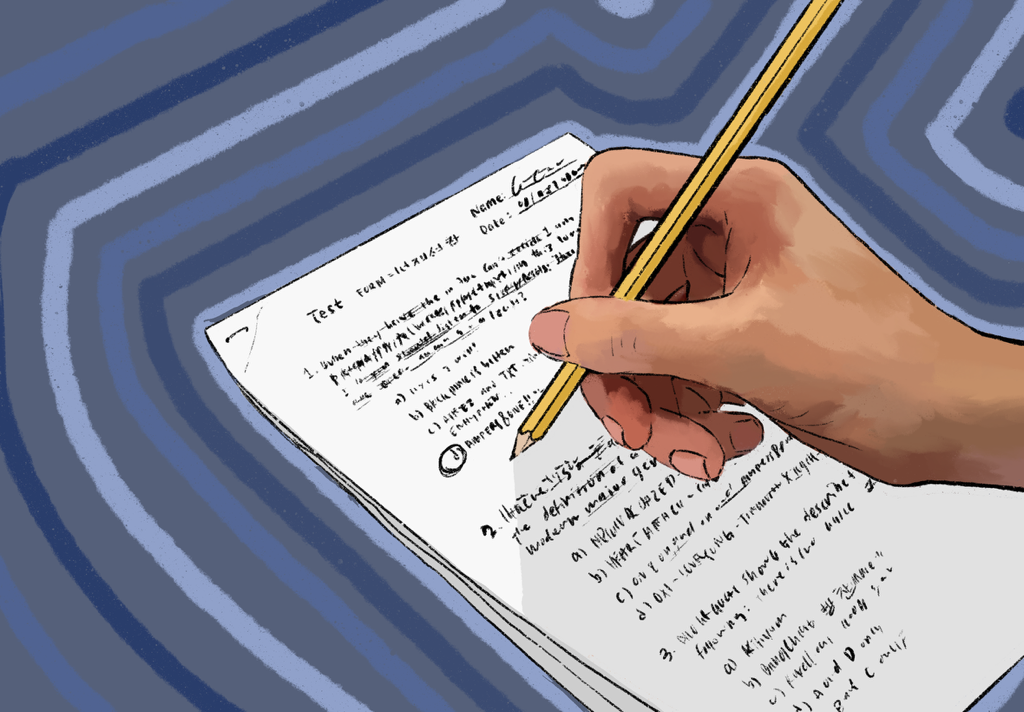At the core of any Choate education lies homework — and while we’ve all had our objections to it at one point or another, it is always going to be a large part of every class that we take. It is the subject of countless complaints; from it being too long to being too boring, we always seem to find something to complain about when it comes to homework.
I personally believe that some of the homework we are assigned is ineffective. Yet these complaints raise a couple of important questions. Does this frustration and complaining come from laziness, or does it indicate a a genuine problem with the way teachers assign homework? Are there ways we can improve homework to better our education?
With these questions in mind, it is important to establish that homework does have its benefits, and that teachers at Choate do a good job assigning it. In STEM courses, it allows students to practice problems and improve their understanding of the material. In the humanities, nightly readings are necessary for informed discussions in class, and the occasional take-home essay allows students analyze these readings. But the benefits of homework don’t end there.
Across all departments’ assignments, there is the overlying theme of preparation for the near future — college. If we never do homework, we would struggle immensely with the inevitable workloads in our future. Aside from this, more time spent doing homework has been positively linked to greater academic achievement.
That being said, an infinite increase in homework doesn’t create an infinite increase in success. There’s a cap: the marginal benefit of doing homework or studying appears to end at around two hours a night, and more than that can be detrimental to a student’s well-being.
This problem of decreasing benefit is especially pronounced at Choate, where many students have much more than two hours of homework a night. Choate is unique. Here, there is more homework, and it’s often harder. My planner has become a mess of homework assignments and other things I need to get done.
Most Choate students also don’t have the comforts of living at home, meaning that they have added responsibilities and distractions. While it may seem trivial, not having a parent to keep you on task may mean that a Choate student has trouble focusing on his or her homework. A combination of factors — more homework, other responsibilities, and some trouble focusing — increases the burden of homework in a Choate student’s life.
Stanford researcher Denise Pope conducted a study at high-performing high schools where students had an average of 3.1 hours of homework per night. The study indicated that the optimal time to spend on homework is somewhere between ninety minutes and two and a half hours. It also found that too much homework is associated with greater stress, reductions in health, and less time for friends, family, and extracurricular activities. These consequences play into the combination of factors that make homework more of a burden at Choate. From the results of this study, it seems that simply decreasing the amount of homework given to students would fix these problems, but that is not the case.
While it is important to quantify the time students are spending on homework, different students will take more or less time on certain assignments. As I mentioned earlier, students at Choate sometimes have a lack of focus, causing them to spend more time on homework. Because of this, simply establishing a time limit isn’t the best solution to homework at Choate.
An important factor to consider is the actual content of the assignments given to students. “Busy work” — defined as repetitive, mindless work designed to take up time — doesn’t constitute a high quality assignment, and teachers shouldn’t expect it to be effective. Repeatedly doing the same type of math problem may be useful, but once a student understands it, the repetition becomes busy work. When teachers focus on improving the quality of the assignment rather than the quantity, they will provide assignments that do more for students in less time.
I believe that before assigning homework, teachers should further evaluate what they are giving students to do. They should ask themselves if their assignment does something they couldn’t in the classroom, if it provides students with meaningful practice or preparation, and if it encourages future success in the class. I am sure that most teachers already do this, but they often times feel pressured to assign homework when they don’t really need to. No teacher should be assigning homework because they feel like they have to.
Likewise, students need to hold up their end of the deal. They should give all homework their utmost attention and try their hardest to keep themselves from getting distracted.
With teachers remembering that students shouldn’t be spending an unreasonable amount of time on homework and students putting in their best effort, both teachers and students will benefit. But most importantly, effective homework assignments will generate more focus and productivity, allowing students to go more in-depth into material. If done right, it seems that a decrease in busy work combined with an increase in quality homework could solve countless problems for Choate students.





